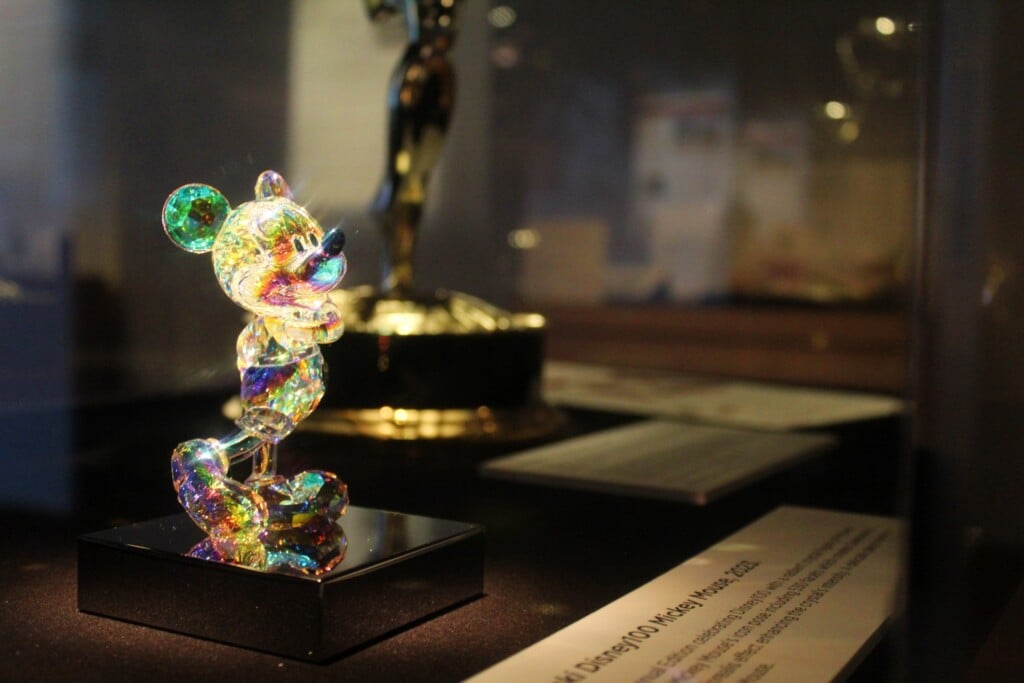Puppet Dictator
If they were individually polled, toddlers in the audience for the Paul Mesner Puppets’ Aesop’s Fables might have varying opinions about the play. But during the show, their screams of delight are so uninhibited and unanimous that it seems as if they’re all on the same carnival ride.
As a fox leaps for succulent grapes hanging high above his head, he falls face-first to the ground, and the laughter rises to a mild roar. At the second jump and second fall, more laughs. After a third attempt, the fox concedes defeat and leaves the stage grumbling something about “sour grapes.” For a theater critic who’s seen human exits ranging from the clumsy to the banal, this marionette’s was perfect: a dignified retreat after a public humiliation.
Mesner goes on to tell the first half of the Lion and the Mouse story, segueing into the tale of the Town Mouse and the Country Mouse. In the first part, the feline predator pauses in his attempt to consume the mouse not just because he’s good at delaying gratification but because the mouse promises a favor, which is returned near the end of the show. In the second part’s city-versus-country debate, Mesner makes the citified mouse a snob and gives adults a good laugh at the expense of the Cheesecake Factory. “It’s the Greasecake Factory,” he says of a make-believe eatery, “where they put so much on the plate you can’t eat it all.”
The Boy Who Cried Wolf makes his entrance, followed by a marvelously constructed puppet made to be a flock of sheep, including an antsy little one bringing up the rear. The shepherd puts his sheep to pasture (off-stage) and does an awfully good job — especially since he’s made of wood — showing his subsequent boredom. He taps his foot, looks around for any kind of distraction and then hatches a plan: He’ll cry “Wolf!” and see if anyone comes to his rescue. Though everyone over age five knows how the story turns out, it’s not a bad thing to be reminded that we shouldn’t cause too much of a ruckus over nothing.
Mesner and Tammy Keiser built the set on Unity Temple’s stage; they’ve constructed a small theater complete with a proscenium arch and grand red curtains; it’s charming in the way of scale-model set designs. Snippets of classical music (plus a parody of Gershwin’s “Summertime”) bridge the scenes, and Christopher Leitch’s costumes for the human characters are reminiscent of Disney animation circa Snow White and the Seven Dwarfs.
But it is Mesner’s show from start to finish. In manipulating the marionettes and giving the voices distinct character all by his lonesome, he presents the equivalent of a grueling 45-minute one-man show — although no one ever sees him. Whoever called James Brown “the hardest working man in show business” hadn’t seen a Paul Mesner Puppets production.
Post script: By the time January rolls into February, the new Phoenix Players will have risen. Though the company will perform on the stage of the Metropolitan Community Church, whose congregation is predominantly gay and lesbian, Phoenix Players director Daisy Vance says the shows will not favor gay or lesbian scripts.
“We could have theme-based shows, but we’re going to hit all phases and walks of life,” says Vance, who five years ago had a hand in the church’s last theatrical troupe, the MCC Theatre Players. And the company’s first production, she says, “has nothing to do with gay or lesbian issues.”
That show is The Cowboy Who Came to Dinner, which the author, Steve Carr, calls “a play within a play that is a mix of screwball comedy and British farce — a little Noel Coward, a little Noises Off.”
The company’s first production was supposed to be another Carr script called Nantucket. Audition notices for that play are still posted around town.) But, Carr says, “we didn’t have enough actors show up to meet the cast requirements, so that show goes back to the drawing board.”
Carr has lived in Kansas City for only two months, but he brought a lengthy list of credits. Most of his scripts have been for children’s theater companies, including a technically challenging adaptation of Gulliver’s Travels that has been performed across the country. Meanwhile, like so many theater gypsies, he’s on the hunt for a space amenable to a new script, Othello and Iago at the Venice Hotel.
The Cowboy Who Came to Dinner will play for only one week, from January 31 to February 2 at MCC, 3801 Wyandotte. Tickets are $9 and can be purchased through the MCC special events line at 816-931-0750.




